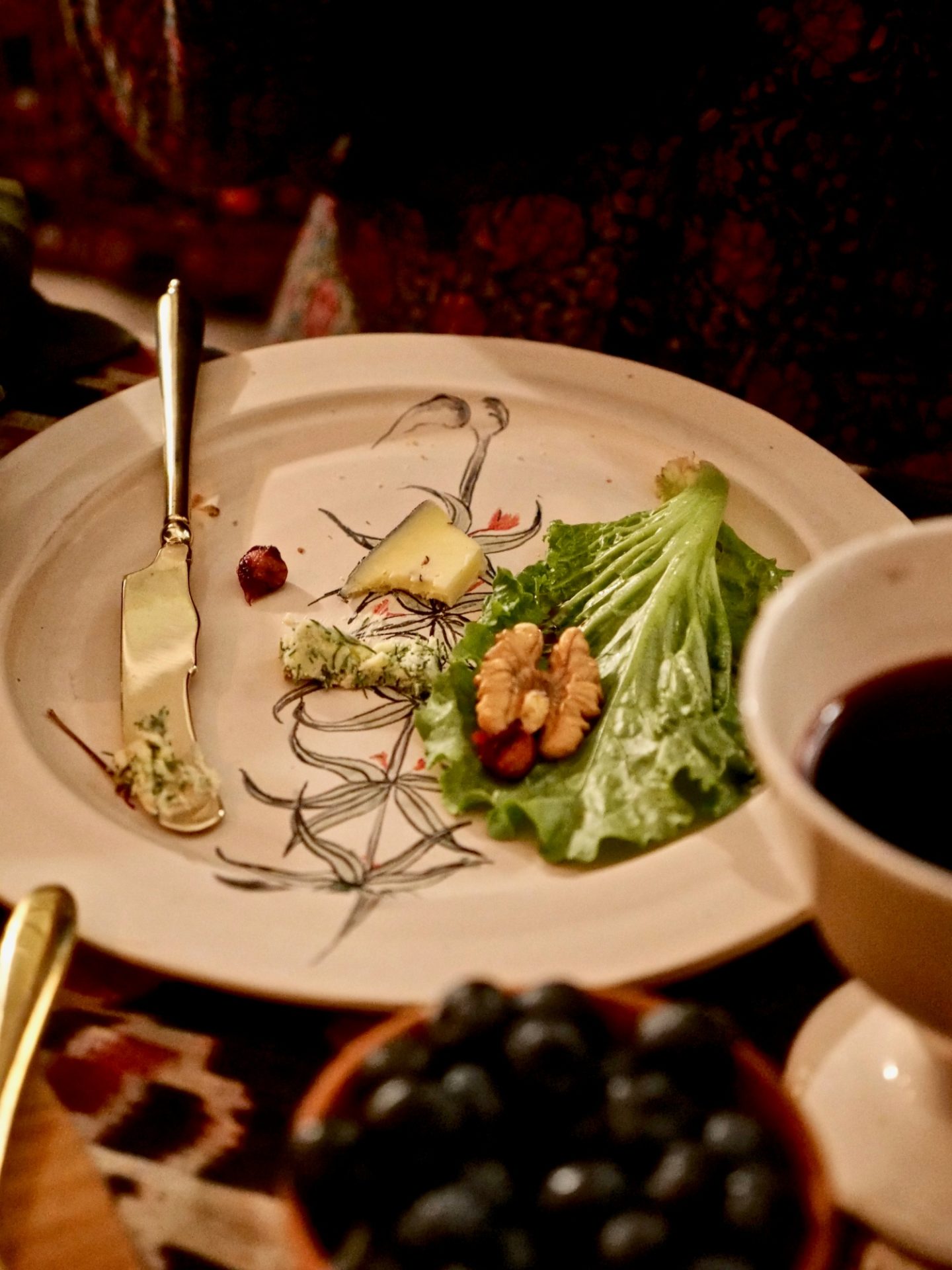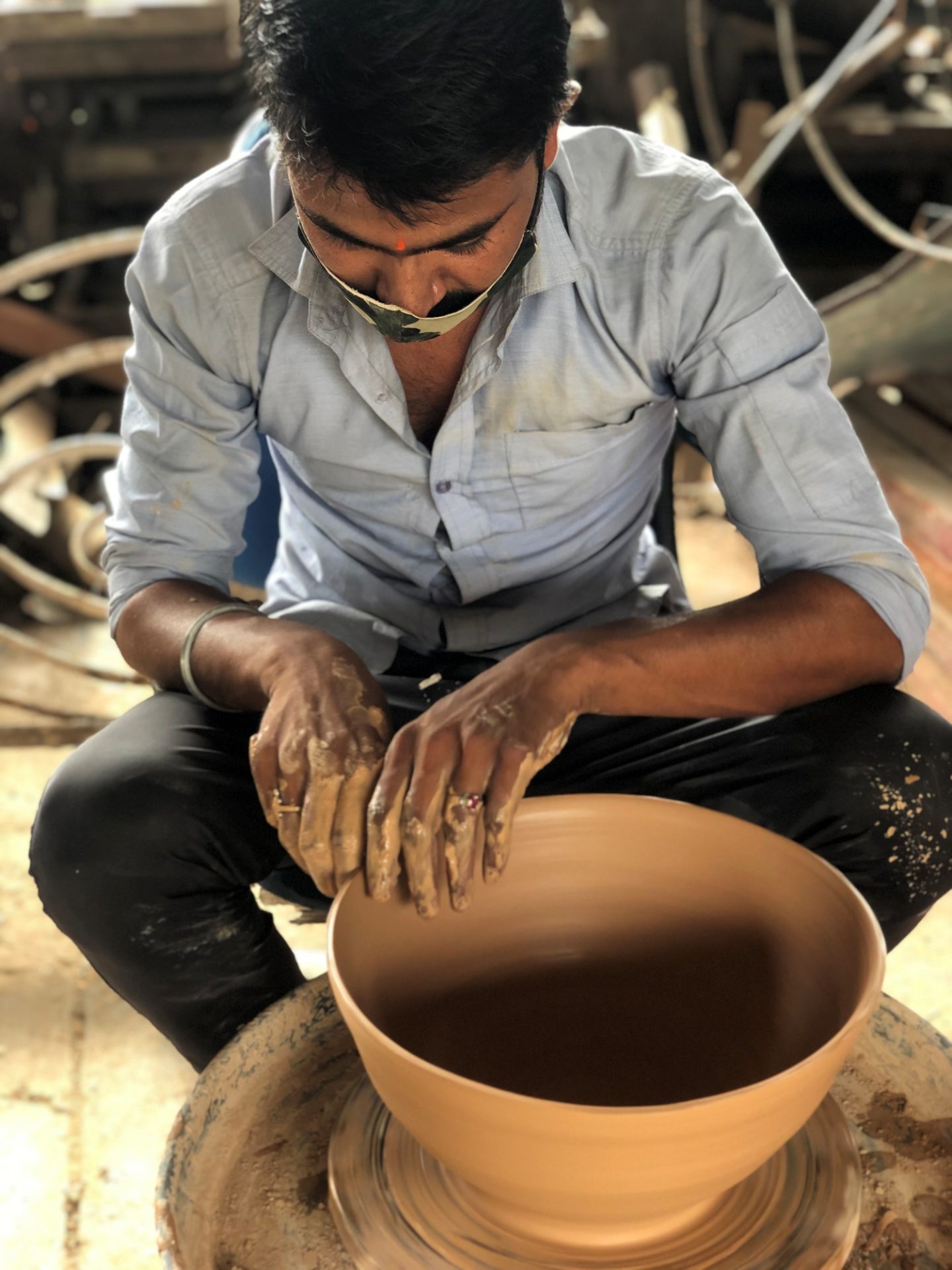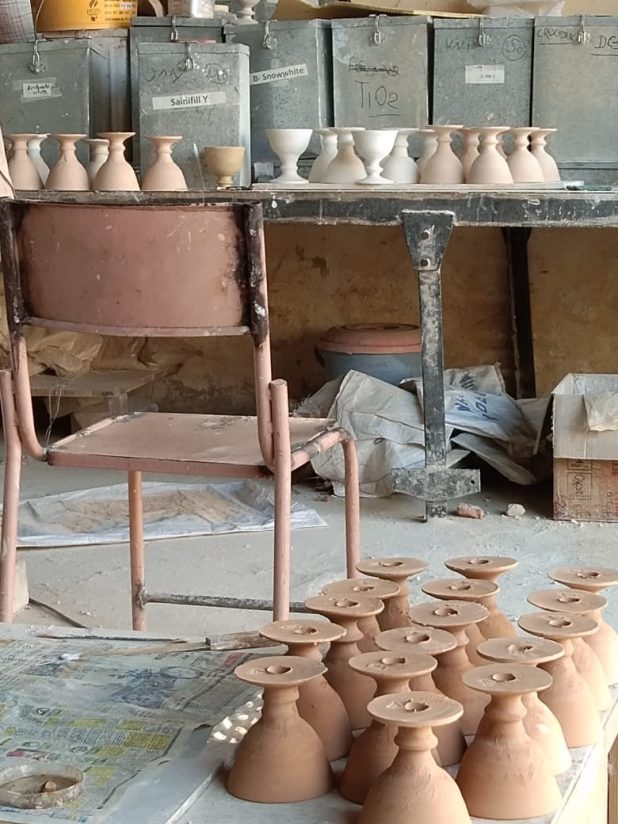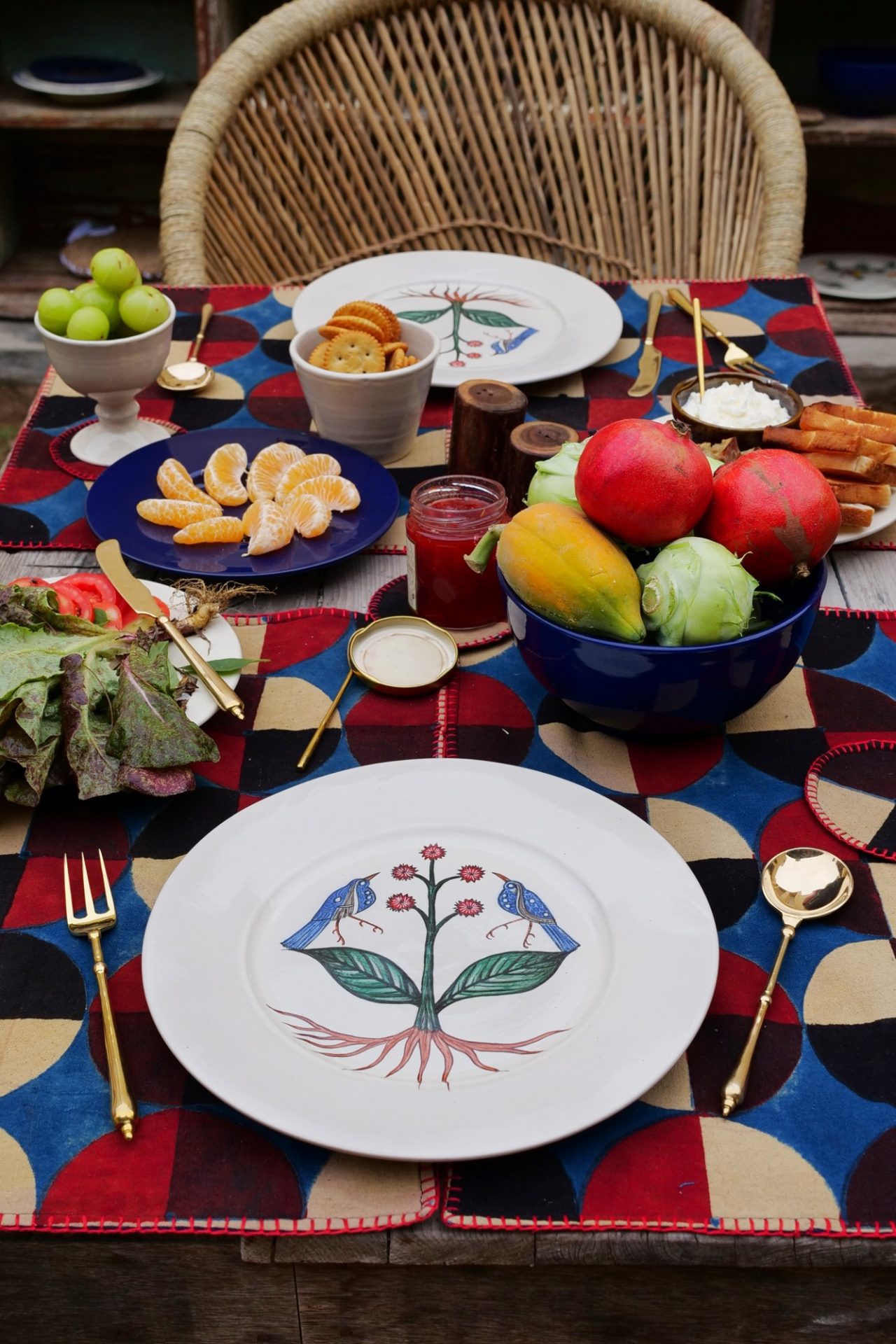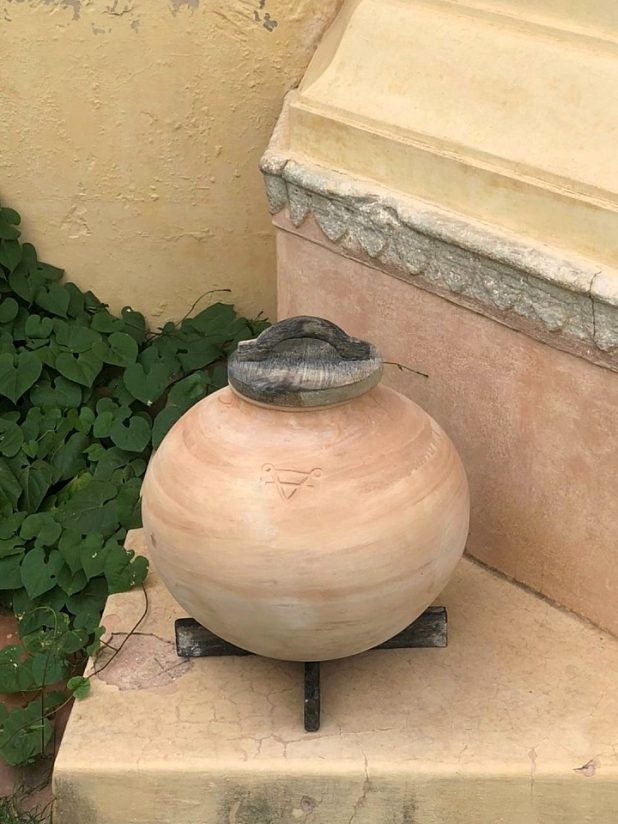Modern Hand-crafted Pottery
Khanoom was founded by Priyamvada Golcha and Simon Marks in the spirit of ensuring that the traditions of hand-thrown pottery objects and miniature painting from Rajasthan can flourish while establishing a market for beautifully crafted hand-made pottery. By Naomi Mathew Vettath
The beginning of Khanoom was simple and spontaneous. While in search of someone to make the tiles he was designing for a hotel kitchen project, Simon Marks and Priyamvada Golcha were introduced. Their love for art and craftsmanship kept them together and sparked this initiative.
Golcha works with Indian craft and organic farming with her family specialising in clay and particle technology for the past 50 years while Marks has been working with artisans in India and Indonesia for the past 20 years across various disciplines such as textiles, natural dyeing, cutlery, and interior design. “We kept on experimenting, the ideas kept on coming and it was like – There are so many ideas! Let’s make a studio together,” says Golcha on how they ventured out.
Using the elements of fire, earth, metal, air, and water, clay which is malleable and soft can be transformed into something strong, durable, and receptive. This elemental alchemy inspired the use of the Alchemical symbol for clay as the logo for Khanoom.
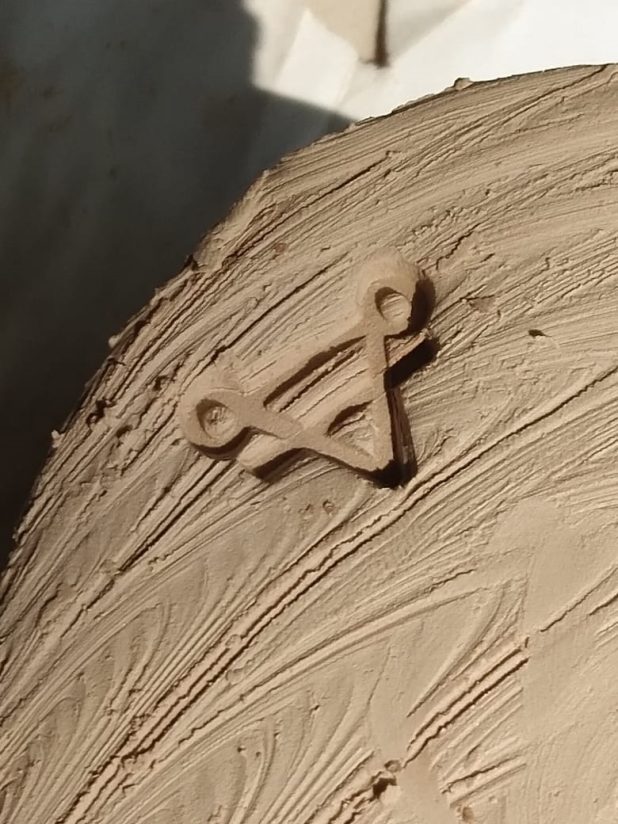 The name, Khanoom, is inspired by the ancient Egyptian God KHNM who was believed to be the creator of Gods and men, which he made on his potter’s wheel with clay brought from the River Nile. They transformed the courtyard of a former glass factory that had been used as storage for more than half a century to evolve into their pottery studio in Jaipur. A small group of highly experienced and talented technicians, potters, and miniature painters from Rajasthan who have all inherited skills passed down from generations, formed their team.
The name, Khanoom, is inspired by the ancient Egyptian God KHNM who was believed to be the creator of Gods and men, which he made on his potter’s wheel with clay brought from the River Nile. They transformed the courtyard of a former glass factory that had been used as storage for more than half a century to evolve into their pottery studio in Jaipur. A small group of highly experienced and talented technicians, potters, and miniature painters from Rajasthan who have all inherited skills passed down from generations, formed their team.
‘Our vision is two-fold: to create pottery and tableware that fuse together traditional techniques with a blend of East & West sensibilities for contemporary living encapsulating function, tradition, and beauty; and to ensure that the potter’s craft continues, develops and thrives, providing a livelihood for the men and women involved in Jaipur and Rajasthan’, explains Golcha.
Each product produced by the studio goes through a process of first being handcrafted by local potters and then hand-painted, making every item unique. To achieve their high quality of products they have developed custom glazes that are used over the local Kaolin clay procured from Bikaner that allows for finer shapes and higher durability.
 The process for each of these items is in stages. The clay is first hand-thrown into different forms and shapes. The pieces are then left to dry slowly so that they don’t crack. They are each finished by hand and then biscuit-fired. The next stage sees the application of one of their signature glazes followed by on-glaze paintings of desired motifs. The items are then fired a second time. Products that require a lustrous finish are fired a third time. The result of this process is that each final piece is completely unique.
The process for each of these items is in stages. The clay is first hand-thrown into different forms and shapes. The pieces are then left to dry slowly so that they don’t crack. They are each finished by hand and then biscuit-fired. The next stage sees the application of one of their signature glazes followed by on-glaze paintings of desired motifs. The items are then fired a second time. Products that require a lustrous finish are fired a third time. The result of this process is that each final piece is completely unique. 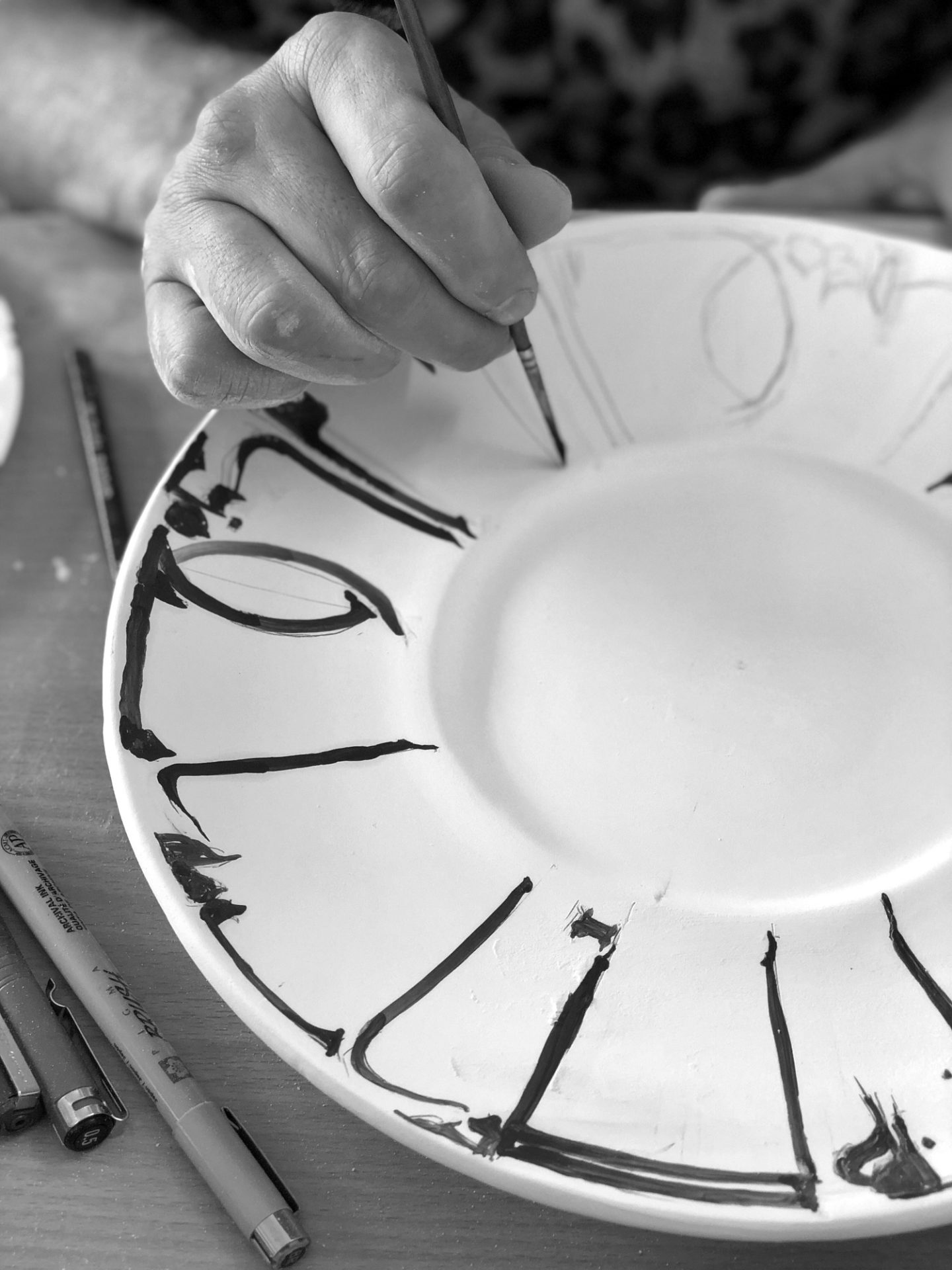
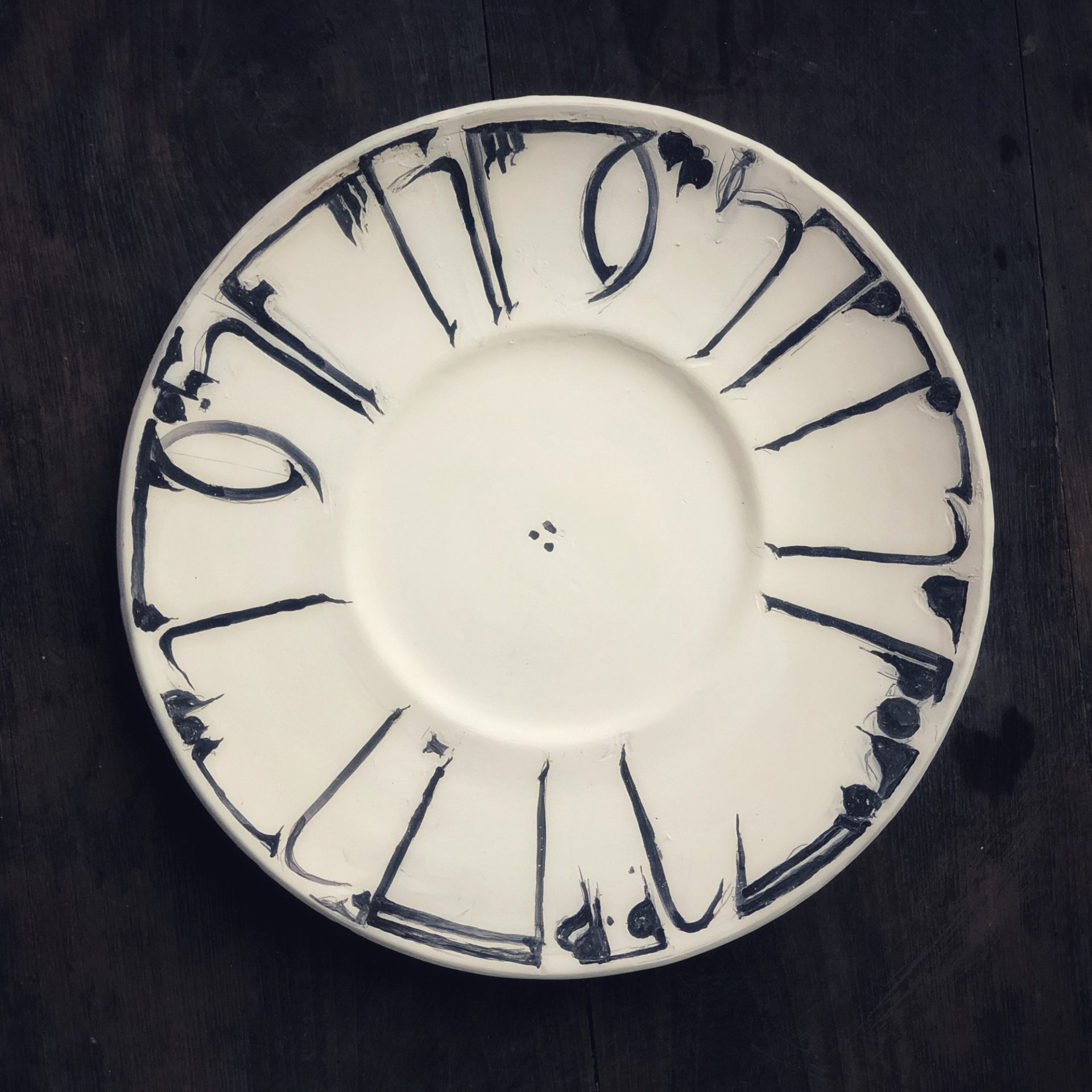
With an intention of creating a market for beautifully crafted hand-made pottery, Khanoom hopes to reward the artists who safeguard years of heritage and skills. They aim to create an environment where local artisans can continue their traditions of hand-thrown pottery objects while increasing the interest in the family’s younger generations to carry on the craft as a viable way of living.
During the second wave of COVID – 19 in India which affected remote villages that were homes to several craftsmen and artisans, Khanoom initiated the Matka Pani relief fund to help aid the ill-equipped and under-prepared rural Rajasthan. Khanoom worked with artisans to make a version of Pani ka Matka – the water pot that is a vital vessel in most homes in India.
Part of the proceeds from the sales of these unique Matka Panis went to the potters and carpenters who carved out the pots while the rest went to the Kutch Craft Collective to support artists in Kutch.
All Images courtesy Khanoom.



